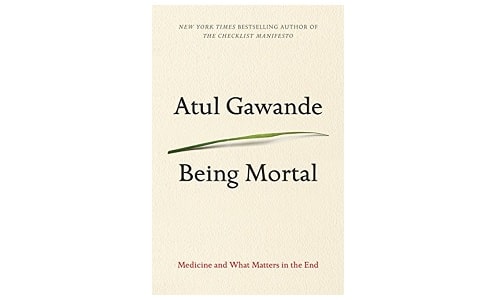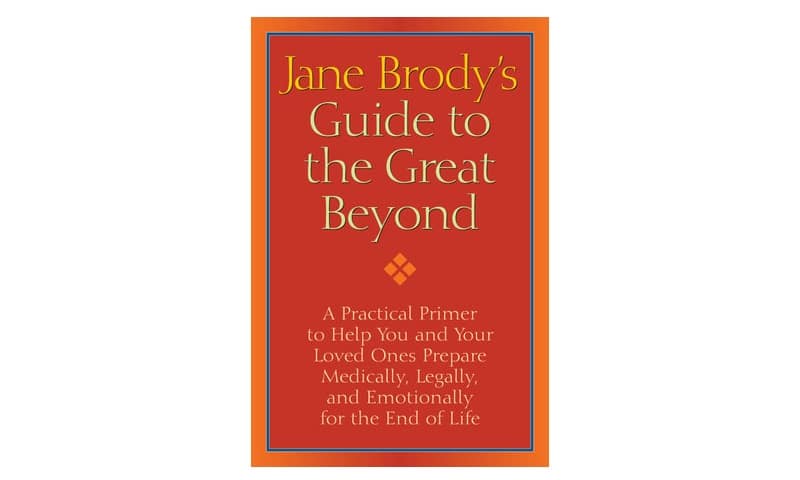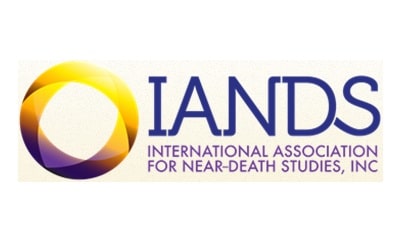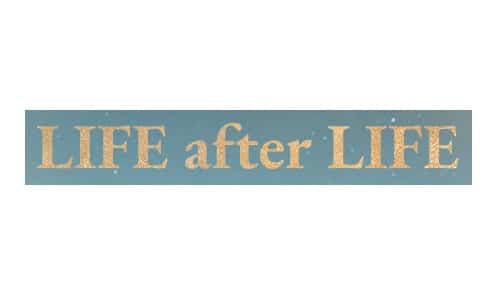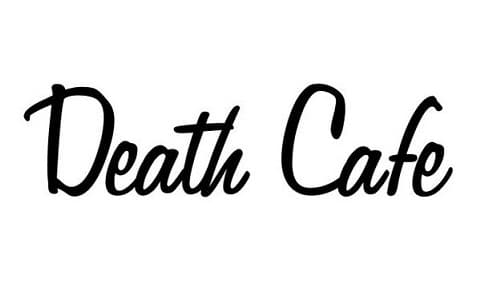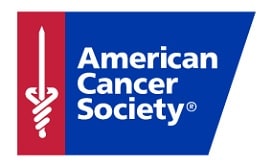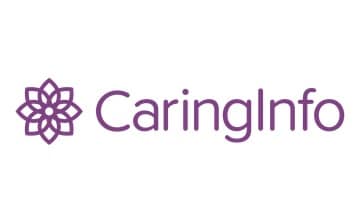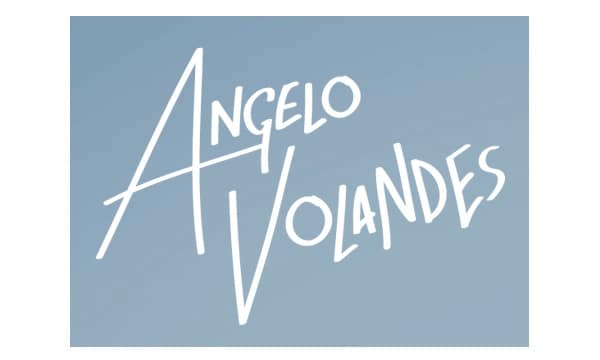We talk about death in our Commonweal cancer programs. There are many reasons why. Perhaps this story about Jenna from our Cancer program highlights our motivation to take on this tough topic.
Jenna’s husband Bill was so committed to fighting for life until the end that he never allowed them to talk as a couple about what was happening. After Bill’s death, Jenna suffered intense grief because they never shared the conversations she so wanted to have before he died. The trauma of Bill’s refusal to talk about what was happening remained with her for many years.
Bill had refused to talk about death because he wanted so much to stay alive—for Jenna and their two young children—that he saw his refusal to talk about death as part of “keeping a positive attitude.” He so deeply believed in the necessity of keeping a positive attitude that, unwittingly, he infinitely compounded his wife’s grief—and their children’s confusion and loss after his death.
The question of “keeping a positive attitude” presents itself especially forcefully around end-of-life issues. Often family members are reluctant to talk about the possibility that a loved one may soon die. Older children, partners, and close friends may respond with discomfort or with the “keep a positive attitude” mantra.
Physicians are often equally reluctant to have a conversation about the end of life. But what happens if the illness progresses and the “positive attitude” mantra no longer works? Likewise, if a parent or a sibling is going to die, younger children really need to be brought into the process in ways that are sensitive to their age and capacity for understanding.
On this page
When we know death is approaching
Discussing practical questions about how to die as well as possible is often more difficult for some people than the more “elevated” questions about the nature of death or our feelings about it. But at the Commonweal cancer programs including CancerChoices, the Commonweal Cancer Help Program, and Healing Circles Global, exploring these practical issues is almost always seen as helpful.
If the prospect of death is coming closer, here are questions you will inevitably have to answer:
- Where do you want to die? At home, a hospital, a nursing home, or a residential hospice?
- With whom do you want to die? And without whom? Who do you want to be there? And who do you wish not to be there?
- When do you want to die? Do you want everything done to keep you alive as long as possible—or do you want hospice care or even, possibly, the capacity to choose the time of your death?
- How do you want to die? Is being conscious at death very important to you? If so, there may be a tension with ensuring the most complete pain relief possible.
- How do you want to be remembered? How will you mark the place?
- What do you want to leave behind? Beyond the memorial, what other testimony to your time on earth in this body would you like to leave behind? What legacy will you leave?
Consider the role of place
Where you die can make a profound difference for you and those you love. A study at the Dana Farber Cancer Institute in Boston followed 342 dyads of patients and caregivers. The researchers followed the patients and caregivers through the dying process in home hospice, Intensive Care Units, or hospitals. They concluded:
Patients with cancer who die in a hospital or ICU [intensive care unit] have worse QoL [quality of life] compared with those who die at home, and their bereaved caregivers are at increased risk for developing psychiatric illness. Interventions aimed at decreasing terminal hospitalizations or increasing hospice utilization may enhance patients’ QoL at the EOL [end of life] and minimize bereavement-related distress.1Wright AA, Keating NL et al. Place of death: correlations with quality of life of patients with cancer and predictors of bereaved caregivers’ mental health. Journal of Clinical Oncology. 2010 Oct 10;28(29):4457-64.
More specifically:
ICU deaths were associated with a heightened risk for posttraumatic stress disorder, compared with home hospice deaths…Similarly, hospital deaths were associated with a heightened risk for prolonged grief disorder (21.6% [eight of 37] v 5.2% [four of 77]…compared with home hospice deaths.2Wright AA, Keating NL et al. Place of death: correlations with quality of life of patients with cancer and predictors of bereaved caregivers’ mental health. Journal of Clinical Oncology. 2010 Oct 10;28(29):4457-64.
As you can see, these are some very significant differences in the likelihood of prolonged grief disorders for survivors comparing hospital deaths and home hospice deaths. These are very real considerations. People who die in hospitals or ICUs may be more likely to be fighting till the very end, while people who die in home hospice may have recognized, at a certain point, that they are dying, and preferred to seek a better death for themselves and their loved ones at home.
Take time to understand hospice
Few people research hospice with the care they devote to investigating cancer therapies—even though the benefits from time invested are very clear. Some key points:
- Not all hospice services are equal. It is well worth investigating your local hospice options.
- It is far better to look into hospice before a crisis than during a crisis. You can call hospice and say you don’t need them yet but you want to understand what they have to offer.
- It is worth discussing whether palliative care or hospice is a better choice in your community. While many palliative care programs are hospital-focused, some offer outpatient services as well. Under current insurance law, inpatient palliative care is usually better reimbursed than inpatient hospice care. Insurance companies pay a single fixed and relatively modest fee for inpatient hospice care, while palliative care is reimbursed at normal rates. This means that if palliative radiation, for example, might be helpful, the palliative care physician is more likely to prescribe it than the hospice physician. The trade-offs between hospice and palliative care are complex but worth understanding.
- Many people wait too long to call in hospice and do not receive the full benefits. People fear that hospice means they have given up on the hope to live. Not so! There is nothing wrong with getting well enough to “graduate” from hospice—many do! If your condition worsens again, you can always get back into hospice.
- The hospice doctor is important; the hospice nurses are more important; but often most important to you are the home health aides who can spend far more time assisting you than a hospice nurse. It is tremendously valuable to work out—if you need more help than hospice can provide—where you would get home healthcare nurses or workers, how you would cover their costs, and how you would supplement their support with the support of family and friends (see the excellent book Share the Care ›). One option for home care services are companies that provide care. But some of the best home care is provided by nurses and others in your community who do this privately. Hospice nurses are often an excellent resource for identifying the best home-care options.
- Hospice care professionals are experts in providing comfort care, both high touch and high tech, if necessary. They will start with the simplest pain and symptom management therapies, such as using oral pain medications. If the symptom increases or isn’t controlled, they are able to deliver symptom relieving medications by other routes, such as by IV or arrange for nerve-blocking procedures. If at all possible, they will aim to minimize sedation and other side effects. If it seems necessary to use sedating doses of medication to achieve comfort, the hospice team will walk you/your family member through this process so you can decide if this is what’s best for you. Whatever the intensity of the symptom, if adequate expert high level pain and symptom control and sedation are used skillfully, there need be little suffering at death at all.
- Discuss comfort-care wishes with your hospice team to learn what care measures will help with achieving those wishes.
Understand self-deliverance
Some want to explore self-deliverance, or medical aid in dying. For others this is problematic on religious or legal grounds. Many find comfort in knowing they have means to end suffering if it becomes intractable. An increasing number of states have passed “compassion in dying” laws. A number of countries also have similar laws. Many physicians assure their patients that they will not allow them to suffer needlessly. Whether or not your state has a medical-aid-in-dying law, the widespread availability of many measures that successfully relieve pain and symptoms means you should not need to face excessive suffering. IV morphine at home is widely available through hospice. We discuss these measures in our handbook on Pain ›
Learn about psychedelics
One of the greatest cultural revolutions of our time has been the increasingly widespread availability of psychedelics for both medical and non-medical use. Psychedelics are being researched extensively for post-traumatic stress disorder (PTSD)—many people with cancer in fact experience PTSD. But psychedelics are also being used extensively to transform the experience of death and dying. Their value in reducing or transforming death-related anxiety is widely reported.
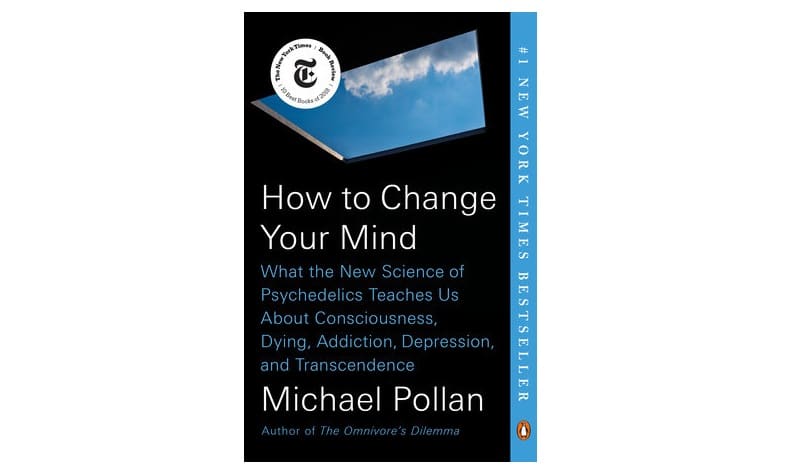
Michael Pollan’s book How to Change Your Mind is one of the great references if this subject is not familiar to you.
There are a wide range of different psychedelic agents. Their legality varies by state. But their use, legal or otherwise, is extremely widespread. Ketamine is already legal and is in widespread use. MDMA, psilocybin, and ayahuasca are three of the common agents beyond ketamine. MDMA is in general the safest in terms of the likelihood of a “positive” experience. Psilocybin is more powerful and experiences can vary more. And ayahuasca is more powerful still. Experienced guides may tailor the use of different psychedelic agents to the level of experience and intentions of their clients.
The essential point is that it is by far best to undertake one of these journeys with an experienced guide. Pollan and others say that there is a debate as to whether medical or licensed supervision is superior to the many experienced guides who are not licensed. But “set and setting” are absolutely critical determinants of the experience. That is why an experienced guide is so essential.

MAPS.org—the Multidisciplinary Association for Psychedelic Studies—is one of the largest research, training and advocacy organizations in the field.
Like any other powerful medicines, psychedelics can cause harm and can certainly be abused. There are also important health issues that should be considered with respect to their safety in individual cases. But responsibly used, the risk/benefit ratio of psychedelics appears highly positive to date.3Psychedelics May Lessen Fear of Death and Dying, Similar to Feelings Reported by Those Who’ve Had Near Death Experiences. Johns Hopkins. August 24, 2022. Viewed October 24, 2023.
Use advance directives to guide your loved ones
If there comes a point when you can’t speak for yourself, having prepared advance directives is invaluable to make sure you receive the care that honors your wishes—whether or not you want all possible means used to keep you alive, or whether you would like to be allowed to die. An advance directive also includes naming a trusted, easily accessible person as your healthcare agent and telling them what your wishes are and making sure they have a copy of your most recent advance directive. It is equally important to have your whole family understand and support these directives, to have your physician know about them, and to have your designated agent with a copy of the directive advocating for you in the hospital—because hospitals are dedicated to keeping you alive and often misplace advance directives or do not have them available in emergency situations.
One particularly key question is whether you want resuscitation attempted if your heart and breathing stop. But as or more important is to communicate how you want to be cared for before the moment when your heart and breathing stop. Do you want to be cared for at home with highly skilled comfort care, or do you wish to be in an ICU?
A significant advance in nearly all states in the US is called POLST: Portable Medical Orders—or variations such as POST, MOST or MOLST—that are more specific and actionable than advance directives and intended for people who may die within a year. Ask your physician whether they are available (or required) in your state or go to National POLST Map ›
Consider what you will leave behind
“Don’t leave a mess,” BJ Miller and Shoshana Berger advise in the very first chapter of their excellent book A Beginner’s Guide to the End—Practical Advice for Living Life and Facing Death. And that is so true. Leaving financial, legal, emotional and other messes for others to untangle is a great burden—exhausting and expensive. We don’t much like what doctors used to tell patients with a terminal diagnosis—“I suggest you go home and get your affairs in order.” Somehow, “don’t leave a mess” seems like a more user-friendly version of the old advice. I won’t go through the list here, but there are numerous handbooks that address all the aspects of not leaving a mess. It’s a great kindness to those who remain. And it’s actually a true wonder when done well.
This is not a popular topic, but it is a necessary one. Many families who go through a major cancer experience find themselves financially depleted or even bankrupted by all the medical and non-medical expenses, to say nothing of the loss of income. “Cancer patients are 2.5 times more likely to file for bankruptcy after they are diagnosed, according to the Fred Hutchinson Cancer Research Center, based in Seattle. Among the financial pain points are the high tab for therapies, out-of-pocket insurance costs and loss of work during and after treatment, said Dr. Veena Shankaran, clinician and co-director of the Hutchinson Institute for Cancer Outcomes Research at Fred Hutch.”4Konish L. Cancer sends many patients into bankruptcy. Advisors are stepping up to stop that. November 25, 2019. Viewed October 24, 2023.
This is in large part due to the high cost of American medical care and the absence of a national health insurance system comparable to what other developed countries have. Sadly, the highest cost of care can come near the end of life, when people can experience numerous trips to the ICU or undergo ineffective treatments in hopes for a cure or some more time.5Motamedi M, Brandenburg C et al. Concerns and potential improvements in end-of-life care from the perspectives of older patients and informal caregivers: a scoping review. BMC Geriatrics. 2021 Dec 20;21(1):729. As BJ Miller shares, “Our healthcare system is wired to extend bodily life at all costs, and as our technologies have improved you can prop up a body practically indefinitely… As patients—as people—you have to upend the medical system. You have to disrupt it and say ‘no thanks.’”6Miller BH, Berger S. A Beginner’s Guide to the End—Practical Advice for Living Life and Facing Death. 2020. Simon & Schuster. Treatments near the end of life often do not prolong life, can lead to greater suffering, and end up adding a heavy financial and human toll. These can be avoided with clear directives and advance care planning.
On the flip side, thought can also be given to what beauty or lasting impacts you want to leave for your loved ones and community, whether it’s in the form of messages or new memories created for loved ones or legacy gifts.
Share your feelings on a memorial
One of the greatest gifts we can give those who survive us is to offer how we wish to be remembered. Some people write what are called “ethical wills”—statements of the values and beliefs for which they would like to be remembered. It is lovely to participate in a memorial service created by the person being remembered. Some of the rituals we have seen created by Cancer Help Program alumni have been memorable. One alum arranged to ride through Santa Cruz in an open coffin with a New Orleans Second Line band before he died. A friend of my mother in her retirement community threw a memorial service for herself and enjoyed it so much she planned another the following year. Another friend wants to go out in his beloved coastal forest and take psychedelics as he goes out. That is what both Aldous Huxley and Steve Jobs did. Huxley’s last word was “Interesting.” Jobs’s last word was “Wow.”
Grieve your life
Grieving is an essential dimension of the dying process. We can also grieve for what we have lost long before death is at issue.
There are many excellent resources on grief including our colleague Francis Weller’s superb book, The Wild Edge of Sorrow: Rituals of Renewal and the Sacred Work of Grief.
Lenore Lefer, the late senior co-leader of the Cancer Help Program, once sent this simple observation from Leon Wieseltier to the CCHP alumni:
Though we encounter it as suffering, grief is in fact an affirmation. The indifferent do not grieve, the uncommitted do not grieve, the loveless do not grieve. We mourn only the loss of what we have loved and what we have valued, and in this way mourning darkly refreshes our knowledge of the causes of our loves and the reasons for our values. Our sorrow restores us to the splendors of our connectedness to people and to principles. It is the yes of a broken heart. In our bereavement we discover how much was ruptured by death, and also how much was not ruptured.
We think of grieving as what we do after someone we love dies. But we grieve more than death—and less. We grieve the loss of body parts, or sexuality, or hearing, or memory, or beauty, or intimacy. We grieve before an anticipated loss, not just afterward. Acknowledging, expressing and exploring this anticipatory grieving can be tremendously beneficial.
There is such a thing as good grief. You can help those you love grieve well before you die by talking about it, communicating what is unfinished. We are surrounded by incomplete conversations. There are things we want to say before we die. When we see death approaching, saying what we want to say becomes far more important. As one friend put it, the message may be: “Hello. I love you and I forgive you. Do you forgive me?”
Find acceptance
A personal note from Michael Lerner
One way or another, we will have to choose whether we accept that we will die or whether we fight it all the way out. And while some might think acceptance is superior, in the reality of the situation, people sometimes discover they have an innate will to live that is hard to overcome. “Even the wise fear death,” says the great Buddhist text, The Dhammapada. “Life clings to life.” Or Dylan Thomas’s great line:
Do not go gentle into that good night
Rage, rage against the dying of the light.
In 2020, I faced a life-threatening condition and a major surgery. For the second time in my life I was face-to-face with my own mortality. I discovered in both situations that I was not afraid to die. I also knew I wanted to live with every fiber of my being.
The truth for me is that my willingness to face death, to think about death, and to explore death has been essential for me—both as a practical matter and in terms of my own spiritual evolution.
The Buddha said that the meditation on death is the deepest meditation. I have come to agree. Many of the great traditions encourage us to actually practice dying. It is a remarkable thing to do. Likewise, it is remarkable to find places and times, formal or informal, to share thoughts about dying with people you trust. Or to read about death, or watch films about death, or listen to podcasts about death. The truth is that the more we prepare—both practically and spiritually—for the day that we leave this existence, the greater the likelihood that we will leave the way we would like to leave. And that is a great blessing for us, for those who love us, and for our entire community.
Death and life’s great questions blog series
Helpful links on death and dying
Explore these resources that may help you further explore this vast topic. It may help you to learn more about deciding and communicating your values and goals, so you receive care that is most aligned with your wishes.
Books on death and dying
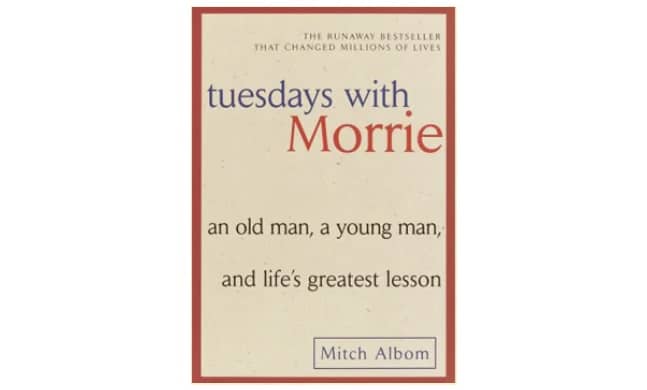
Mitch Albon: Tuesdays with Morrie ›
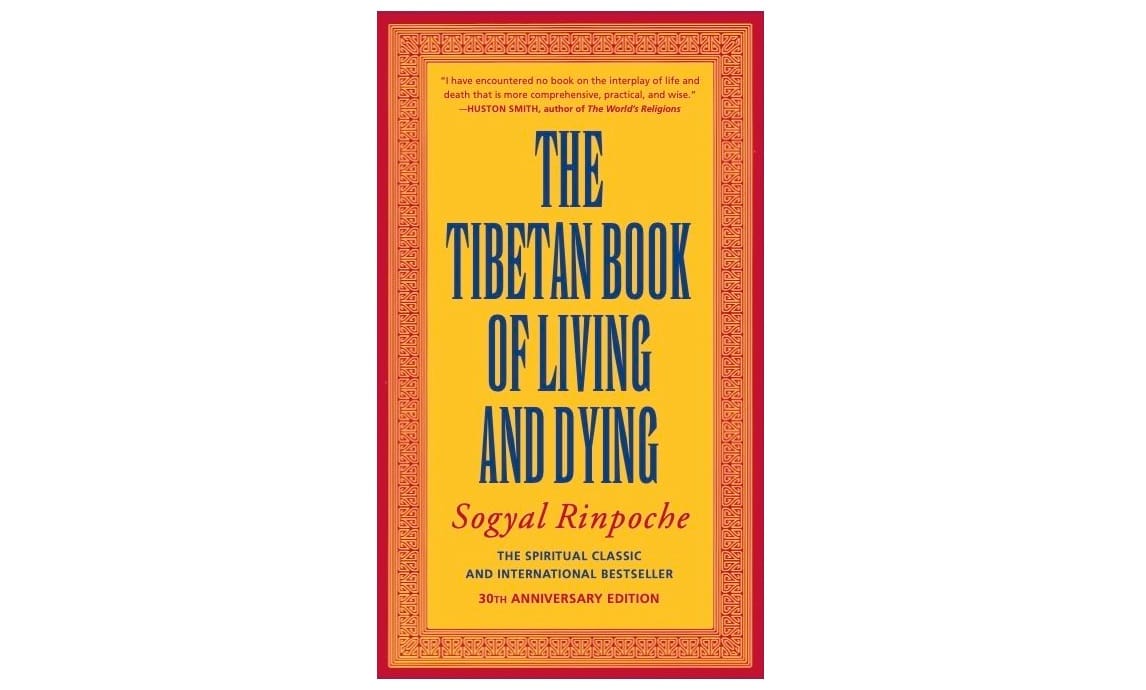
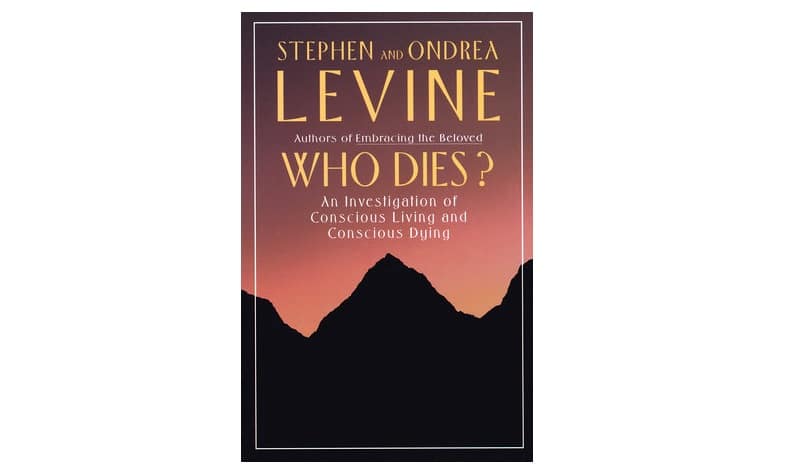
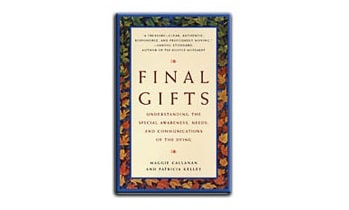
Maggie Callanan and Patricia Kelley: Final Gifts ›
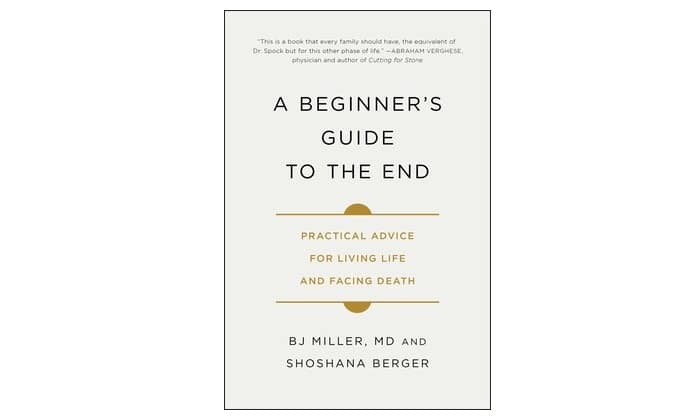
BJ Miller and Shoshana Berger: A Beginner’s Guide to the End—Practical Advice for Living Life and Facing Death ›
Near-death experiences
Support groups
Explore this vast subject with others.
Podcasts
Advance care and your wishes
Hospice care
General information on hospice
Choosing a hospice
Psychedelics
Choices in hastening death
Are you a health professional?
Depression and suicide
See a discussion and resources related to suicide and cancer in Depression: Are you a health professional? ›
Helpful links for health professionals
Resources to share with patients are listed above in Helpful links on death and dying ›
Health professional comment
We invite health professionals to contribute expertise or send us questions.
"*" indicates required fields
References

